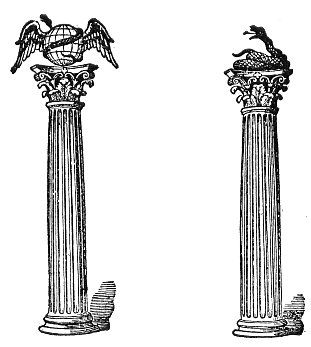p. 517
Like the belief in a Deity, the belief in the soul’s immortality is rather a natural feeling, an adjunct of self-consciousness, than a dogma belonging to any particular age or country. It gives eternity to man’s nature, and reconciles its seeming anomalies and contradictions; it makes him strong in weakness and perfectible in imperfection; and it alone gives an adequate object for his hopes and energies, and value and dignity to his pursuits. It is concurrent with the belief in an infinite, eternal Spirit, since it is chiefly through consciousness of the dignity of the mind within us, that we learn to appreciate its evidences in the Universe.
To fortify, and as far as possible to impart this hope, was the great aim of ancient wisdom, whether expressed in forms of poetry or philosophy; as it was of the Mysteries, and as it is of Masonry. Life rising out of death was the great mystery, which symbolism delighted to represent under a thousand ingenious forms. Nature was ransacked for attestations to the grand truth which seems to transcend all other gifts of imagination, or rather to be their essence and consummation. Such evidences were easily discovered. They were found in the olive and the lotus, in the evergreen myrtle of the Mystæ and of the grave of Polydorus, in the deadly but self-renewing serpent, the wonderful moth emerging from the coffin of the worm, the phenomena of germination, the settings and risings of the sun and stars, the darkening and growth of the moon, and in sleep, “the minor mystery of death.”
The stories of the birth of Apollo from Latona, and of dead heroes, like Glaucus, resuscitated in caves, were allegories of the natural alternations of life and death in nature, changes that are but expedients to preserve her virginity and purity inviolable in the general sum of her operations, whose aggregate presents only a majestic calm, rebuking alike man’s presumption and his despair. The typical death of the Nature-God, Osiris, Atys, Adonis, Hiram, was a profound but consolatory mystery: the heating charms of Orpheus were connected with his destruction; and his bones, those valued pledges of fertility and victory, were, by a beautiful contrivance, often buried within the sacred precincts of his immortal equivalent.
In their doctrines as to the immortality of the soul, the Greek Philosophers merely stated with more precision ideas long before extant independently among themselves, in the form of symbolical suggestion. Egypt and Ethiopia in these matters learned from
p. 518
[paragraph continues] India, where, as everywhere else, the origin of the doctrine was as remote and untraceable as the origin of man himself. Its natural expression is found in the language of Chrishna, in the Bagvat Ghita: “I myself never was non-existent, nor thou, nor these princes of the Earth; nor shall we ever hereafter cease to be. . . The soul is not a thing of which a man may say, it hath been, or is about to be, or is to be hereafter; for it is a thing without birth; it is pre-existent, changeless, eternal, and is not to be destroyed with this mortal frame.”
According to the dogma of antiquity, the thronging forms of life are a series of purifying migrations, through which the divine principle re-ascends to the unity of its source. Inebriated in the bowl of Dionusos, and dazzled in the mirror of existence, the souls, those fragments or sparks of the Universal Intelligence, forgot their native dignity, and passed into the terrestrial frames they coveted. The most usual type of the spirit’s descent was suggested by the sinking of the Sun and Stars from the upper to the lower hemisphere. When it arrived within the portals of the proper empire of Dionusos, the God of this World, the scene of delusion and change, its individuality became clothed in a material form; and as individual bodies were compared to a garment, the world was the investiture of the Universal Spirit. Again, the body was compared to a vase or urn, the soul’s recipient; the world being the mighty bowl which received the descending Deity. In another image, ancient as the Grottoes of the Magi and the denunciations of Ezekiel, the world was as a dimly illuminated cavern, where shadows seem realities, and where the soul becomes forgetful of its celestial origin in proportion to its proneness to material fascinations. By another, the period of the Soul’s embodiment is as when exhalations are condensed, and the aerial element assumes the grosser form of water.

Moe is the founder of GnosticWarrior.com. He is a father, husband, author, martial arts black belt, and an expert in Gnosticism, the occult, and esotericism.





